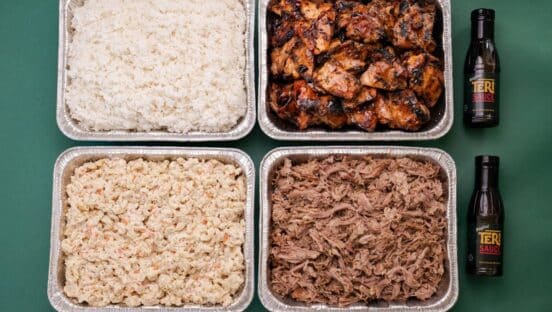Global Green USA announced last week its plan to substitute all non-recyclable transfer packaging distributed from Hunt’s Point Distribution Center, the largest food distribution center in the world, with recyclable packaging. If successful, the program would divert 30,000 tons per year of corrugated from the landfill and would reduce greenhouse gases equivalent to taking 19,000 cars off the road and would set the standard for greening transfer packaging throughout the world.
The launch of the program included an announcement by Global Green USA’s Coalition for Resource Recovery’s Founder’s Circle member Interstate Container, and its business partner, Mountaire, to conduct field trials on boxes used to ship poultry through wholesale channels. According to Pete Bugas, National Account Manager, Interstate Container, “Interstate Container began working on recyclable packaging in 2003 because we were committed to making a sustainable package and foresaw that this also would be increasingly important to our customers.” According to Mountaire’s Larry Saywell, “We were delighted when Interstate Container approached us regarding partnering on trials. We knew this would be important for our business, our customers, and was a way that Mountaire could uniquely contribute to creating a better world for all.”
This is just the most recent step in the process to eliminate wax boxes. In 2005 and 2006 grocers such as Albertsons and Wal-Mart worked with their supply chain to eliminate wax –coated poultry boxes. These grocers quickly realized a cost savings due to the switch because they could now sell the old corrugated cardboard (OCC) rather than paying to have it hauled away with trash. Initiatives also have been supported by the development of the Fibre Box Association’s voluntary protocol and standard which certifies boxes with alternative coatings as recyclable within the existing OCC recycling stream. Since these early trials and development of the recyclability certification, there has been a steady progression to test products under more trying conditions – an environment with more moisture.
The Interstate and Mountaire partnership has led the charge and achieved significant results. In the fourth quarter of 2008, Mountaire’s export business transitioned to recyclable boxes which also are manufactured by Interstate Container. Boxes destined for export are exposed to moist conditions prior to the product entering freezers, requiring even greater performance than those shipped to domestic grocers. Interstate and Mountaire are the only companies to have made this transition.
Converting boxes for the domestic wholesale market would complete the transition and is the greatest challenge. Poultry destined for restaurants and bodegas often is ice-packed or shipped in close proximity to product that is, and this moist environment creates the most trying conditions for poultry transfer packaging.
According to Annie White, Director of Global Green USA’s Coalition for Resource Recovery, “Demonstrating that recyclable packaging meets the rigorous performance criteria of wholesale distribution channels is an important first step in the recyclable box transition. Our next step is to coordinate trials for all packaging applications and food types including meat, poultry, seafood, and produce to demonstrate these boxes can work in a range of applications.”
The Hunt’s Point Demonstration Project is but one of several of Global Green USA’s Coalition for Resource Recovery dedicated to generating business value through creating a sustainable, zero waste New York City. Coalition members include: Action Carting, Chemol, Interstate Container, Plasma Waste Recycling, Pratt Industries, Spectra-Kote, Starbucks Coffee Company, and Tomra. Meeting sponsors include: Coalition members and Ciba, Green Bay Packaging, Mountaire, Packaging Products Corporation, Salsberg Group, and Temple Inland. Additional funding has been provided by the Turner Foundation.

